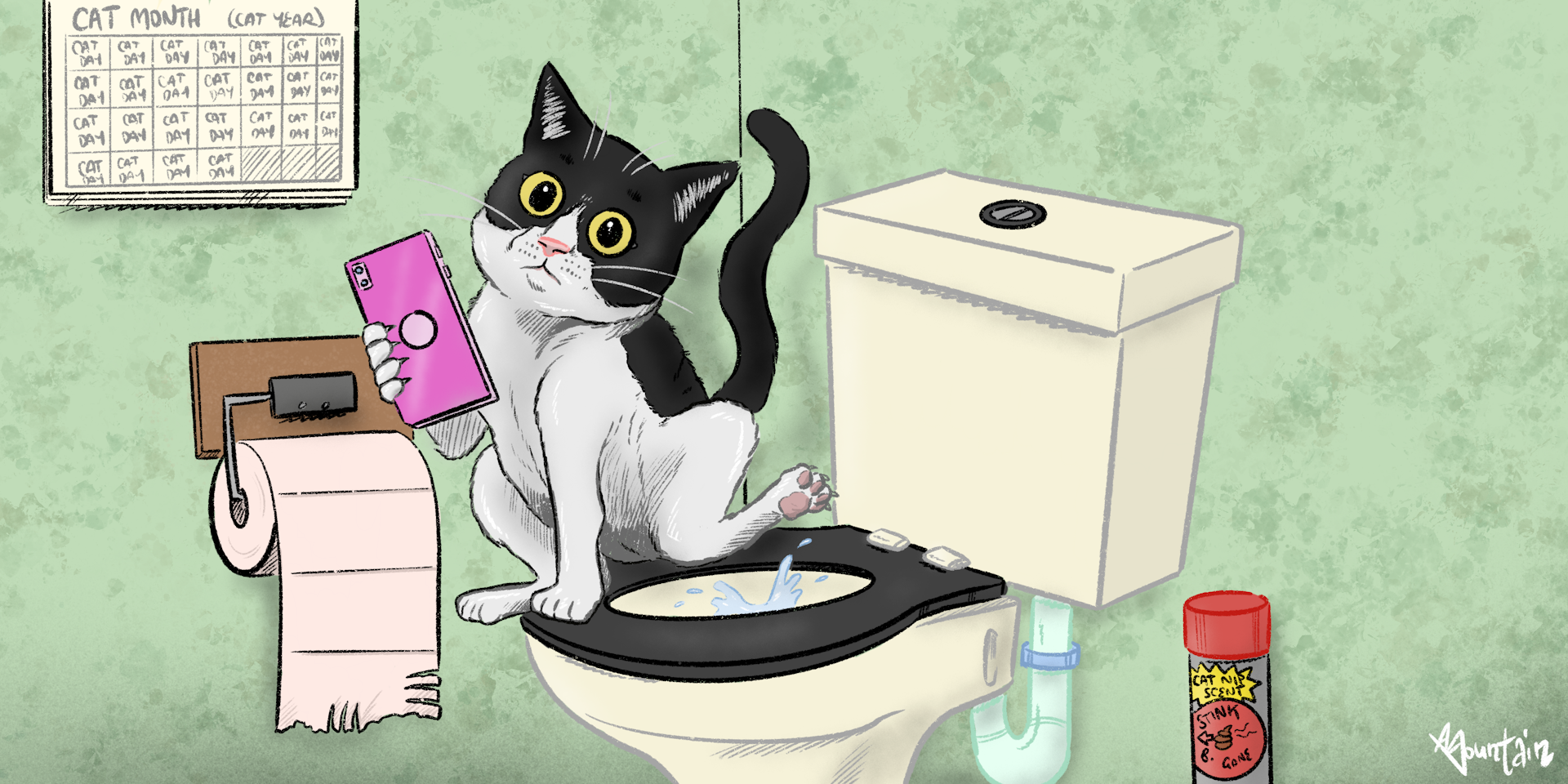Just about every person maintains their own individual opinion when it comes to Don’t flush cat feces down the toilet.

Intro
As cat owners, it's vital to bear in mind how we take care of our feline buddies' waste. While it might seem practical to flush feline poop down the toilet, this technique can have damaging effects for both the environment and human wellness.
Ecological Impact
Flushing pet cat poop presents harmful pathogens and bloodsuckers into the water supply, posturing a significant risk to water ecosystems. These pollutants can adversely influence marine life and concession water high quality.
Health and wellness Risks
In addition to environmental concerns, flushing feline waste can likewise posture wellness risks to human beings. Pet cat feces might contain Toxoplasma gondii, a parasite that can cause toxoplasmosis-- a potentially serious health problem, especially for pregnant women and people with damaged immune systems.
Alternatives to Flushing
Fortunately, there are more secure and much more responsible means to deal with cat poop. Consider the following options:
1. Scoop and Dispose in Trash
The most usual method of disposing of feline poop is to scoop it into a biodegradable bag and toss it in the trash. Be sure to use a devoted litter scoop and deal with the waste immediately.
2. Usage Biodegradable Litter
Opt for naturally degradable feline litter made from products such as corn or wheat. These clutters are eco-friendly and can be safely dealt with in the trash.
3. Bury in the Yard
If you have a lawn, think about burying pet cat waste in a marked location away from veggie gardens and water sources. Make sure to dig deep adequate to avoid contamination of groundwater.
4. Install a Pet Waste Disposal System
Purchase a pet dog waste disposal system specifically created for feline waste. These systems make use of enzymes to break down the waste, minimizing odor and ecological effect.
Conclusion
Liable family pet possession expands past supplying food and shelter-- it additionally includes correct waste administration. By refraining from flushing cat poop down the bathroom and selecting alternate disposal methods, we can lessen our ecological impact and secure human wellness.
Why Can’t I Flush Cat Poop?
It Spreads a Parasite
Cats are frequently infected with a parasite called toxoplasma gondii. The parasite causes an infection called toxoplasmosis. It is usually harmless to cats. The parasite only uses cat poop as a host for its eggs. Otherwise, the cat’s immune system usually keeps the infection at low enough levels to maintain its own health. But it does not stop the develop of eggs. These eggs are tiny and surprisingly tough. They may survive for a year before they begin to grow. But that’s the problem.
Our wastewater system is not designed to deal with toxoplasmosis eggs. Instead, most eggs will flush from your toilet into sewers and wastewater management plants. After the sewage is treated for many other harmful things in it, it is typically released into local rivers, lakes, or oceans. Here, the toxoplasmosis eggs can find new hosts, including starfish, crabs, otters, and many other wildlife. For many, this is a significant risk to their health. Toxoplasmosis can also end up infecting water sources that are important for agriculture, which means our deer, pigs, and sheep can get infected too.
Is There Risk to Humans?
There can be a risk to human life from flushing cat poop down the toilet. If you do so, the parasites from your cat’s poop can end up in shellfish, game animals, or livestock. If this meat is then served raw or undercooked, the people who eat it can get sick.
In fact, according to the CDC, 40 million people in the United States are infected with toxoplasma gondii. They get it from exposure to infected seafood, or from some kind of cat poop contamination, like drinking from a stream that is contaminated or touching anything that has come into contact with cat poop. That includes just cleaning a cat litter box.
Most people who get infected with these parasites will not develop any symptoms. However, for pregnant women or for those with compromised immune systems, the parasite can cause severe health problems.
How to Handle Cat Poop
The best way to handle cat poop is actually to clean the box more often. The eggs that the parasite sheds will not become active until one to five days after the cat poops. That means that if you clean daily, you’re much less likely to come into direct contact with infectious eggs.
That said, always dispose of cat poop in the garbage and not down the toilet. Wash your hands before and after you clean the litter box, and bring the bag of poop right outside to your garbage bins.
https://trenchlesssolutionsusa.com/why-cant-i-flush-cat-poop/

We had been brought to that report about Don’t flush cat feces down the toilet from a friend on a different domain. In case you appreciated our blog entry kindly do not forget to share it. I am grateful for your time. Kindly visit our site back soon.
Get A Quote